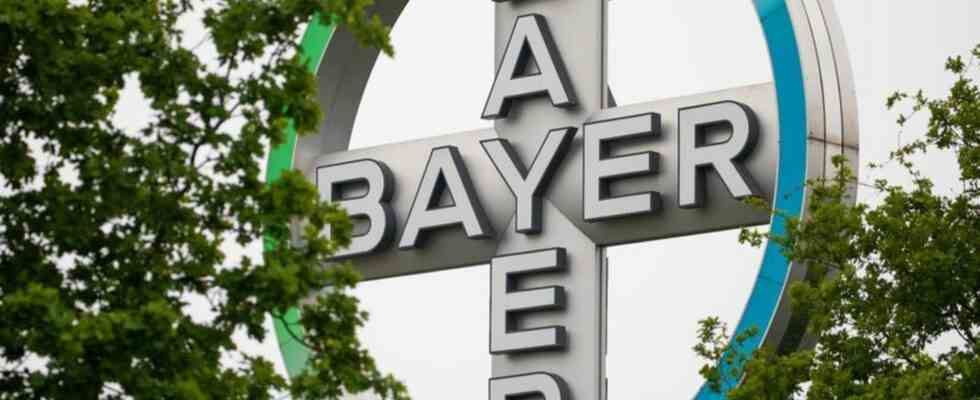agrochemistry
Bayer rakes in billions by selling part of the company
The Bayer logo at Cologne/Bonn Airport. Photo: Oliver Berg/dpa
© dpa-infocom GmbH
In order to lower its mountain of debt, the 100,000-employee Bayer company is selling a division that employs 800 people. The income is surprisingly high.
With the sale of a part of the company that contains certain products for pest control and weed killing, the agrochemical group Bayer makes a lot of money.
The financial investor Cinven is taking over the “Environmental Science” division for 2.6 billion dollars (2.4 billion euros), Bayer announced on Thursday in Leverkusen. The Bayer board member responsible, Rodrigo Santos, said they received “a very attractive purchase price”. The sale allows one to concentrate on the core agricultural business.
The division, whose headquarters were relocated from France to the USA, sells herbicides and other products to professional users, whether forest owners, cities or industrial groups. Areas of application are, for example, golf courses and green areas in parks or in industrial plants. It’s not about farming. “Environmental Science” does not have any products with glyphosate in its portfolio – these products should remain with Bayer in the long term.
At the end of 2021, the part of the company that has now been sold had 800 employees, and annual sales in 2019 were around 600 million euros. Bayer did not announce a more up-to-date sales value because of the sales process initiated a year ago. The agrochemicals division (“Crop Science”), to which “Environmental Science” belonged, achieved sales of 20.2 billion euros in 2021 – so the proportion of the sold part of the company is small. The transaction is expected to be completed in the second half of the year.
With the net income, the people of Leverkusen want to reduce their debt. The group is still suffering from the consequences of the takeover of the US seed company Monsanto, which brought tens of thousands of lawsuits for alleged cancer risks from weed killers containing glyphosate. The dispute costs many billions.
Despite the fact that business has been doing better recently, the share price has been under pressure for years. Currently, the papers cost about half as much as before the Monsanto purchase in 2018. It is therefore important that the US Supreme Court will soon decide whether it will accept a landmark glyphosate case for review.
Should it come to a hearing, the judgment would have a signal effect. From a possible victory, the Leverkusen promise to be able to basically end the dispute. In the event that the court does not accept the case or decides in favor of Bayer, the Leverkusen-based group has already set aside money for further possible payments to future plaintiffs.

